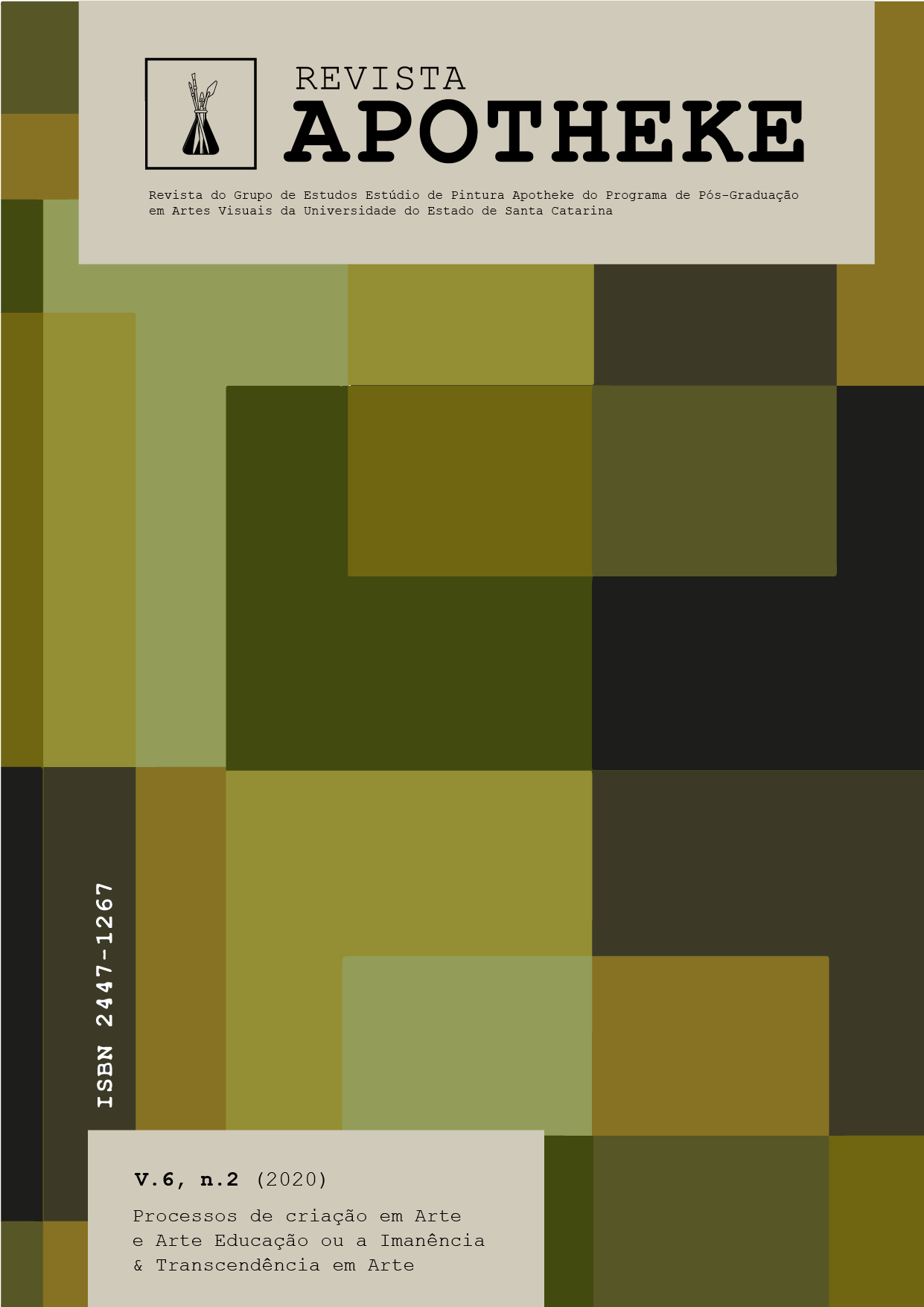Fora da Capital – Oficina de documentários em vídeo digital
DOI:
https://doi.org/10.5965/24471267622020145Keywords:
audiovisual , documentário , oficina , vídeo digitalAbstract
Los documentales siempre han estado en el centro de las discusiones cinematográficas, sea por sus similitudes y/o diferencias con la ficción, libertad estética o vanguardia. Actualmente, la tecnología digital permite que los documentales sean hechos y distribuidos en intervalos de tiempo muy cortos. Estos factores han generado un número creciente de personas interesadas en la producción de documentales. De este interés, el propio autor creó el taller Documentales en Video Digital, cuyo objetivo principal es compartir con los participantes herramientas para que ellos puedan contar sus propias historias. El artículo trata sobre los procesos de creación, metodología y desarrollo de la actividad en más de 40 ciudades del estado de São Paulo; y aborda el proceso de realización del documental largometraje Fora da Capital, resultante de los talleres. También se presenta una breve retrospectiva histórica acerca de los documentales, el constante proceso de evolución de su lenguaje y sus desarrollos actuales.
Downloads
References
AUMONT, Jacques. A teoria dos cineastas. Campinas, Papirus: 2004.
BAMBOZZI, Lucas. O vídeo expandido e seus estilhaços. Disponível em: http://www.lucasbambozzi.net/textos-articles/o-video-explodido-e-seus-estilhacos-pairando-sobre-nos. Acesso em: 15/05/2020.
COSTA, Flavia Cesarino. Primeiro Cinema. In: MASCARELLO, Fernando (org.). História do cinema mundial. Campinas-SP, Papirus Editora: 2006. p.17-52.
GOIFMAN, Kiko. Entrevista concedida a Lucas Gervilla. São Paulo, 17 dez. 2007.
IRWIN, Rita L. A/r/tografy: a metonymic mestissage. In: IRWIN, Rita L e COSSON, Alex (orgs.). A/r/tografy: rendering self through arts-based living inquiry. Vancouver, Pacific Educational Press, 2004. p.27-38.
LABAKI, Amir. Introdução ao documentário brasileiro. São Paulo-SP, Francis Editora: 2006.
LARROSA, Jorge. Notas sobre a experiência e o saber da experiência. Revista Brasileira de Educação. Rio de Janeiro-RJ, vol.01, n.19. p.20-28, jan/fev/mar/abr 2002.
LARROSA, Jorge. O ensaio e a escrita acadêmica. Educação & Realidade. Porto Alegre-RS, vol.28, n.02, p.101-115, jul/dez 2003.
MELLO, Christine. Extremidades do vídeo. São Paulo: Editora Senac São Paulo, 2008.
NICHOLLS, Bill. Introdução ao documentário. Campinas-SP, Papirus Editora: 2016.
RUFFINELLI, Jorge. América Latina em 130 documentários. São Paulo-SP, É Realizações Editora: 2017.
TEIXEIRA, Francisco Elinaldo. Documentário expandido: reinvenções do documentário da contemporaneidade. In: EQUIPE ITAÚ CULTURAL (org.). Sobre fazer documentários. São Paulo-SP: Itaú Cultural, 2007. p.40-45.
RAMOS, Fernão Pessoa. Introdução à 6ª edição brasileira. In: NICHOLLS, Bill. Introdução ao documentário. Campinas-SP, Papirus Editora: 2016. p.11-15.
Downloads
Published
How to Cite
Issue
Section
License
Copyright (c) 2020 REVISTA APOTHEKE

This work is licensed under a Creative Commons Attribution-NonCommercial 4.0 International License.
Copyright and Licensing Policy
Authors of works submitted to Revista APOTHEKE authorize their publication in both print and digital formats exclusively for academic purposes. Reproduction is permitted, provided that the source is properly cited. Authors confirm the originality, authorship, and unpublished status of their manuscripts.
Articles published by the journal are freely available and intended for academic and non-commercial use only. All copyrights are transferred to the journal. The content of signed articles reflects the views of their respective authors and not the official position of Revista Apotheke. The author(s) agree to always cite the following reference when republishing or referring to the content originally published in Revista Apotheke:
“This article was originally published by Revista Apotheke in volume (insert volume), number (insert number), year (insert year), and is available at: http://www.revistas.udesc.br/index.php/APOTHEKE/index”
It is the sole responsibility of the authors to obtain written permission for the use of any material protected by copyright law included in their articles. Revista Apotheke is not responsible for copyright infringements committed by contributors.
Authors retain copyright and grant the journal the right of first publication, with the work licensed under a Creative Commons Attribution-NonCommercial License (CC BY-NC):
-
Attribution (BY): Licensees are allowed to copy, distribute, display, perform, and create derivative works, provided that proper credit is given to the author or licensor, in the manner specified.
-
NonCommercial (NC): Licensees may use the material only for non-commercial purposes.
After publication, authors retain the rights to their work and may republish the text.



